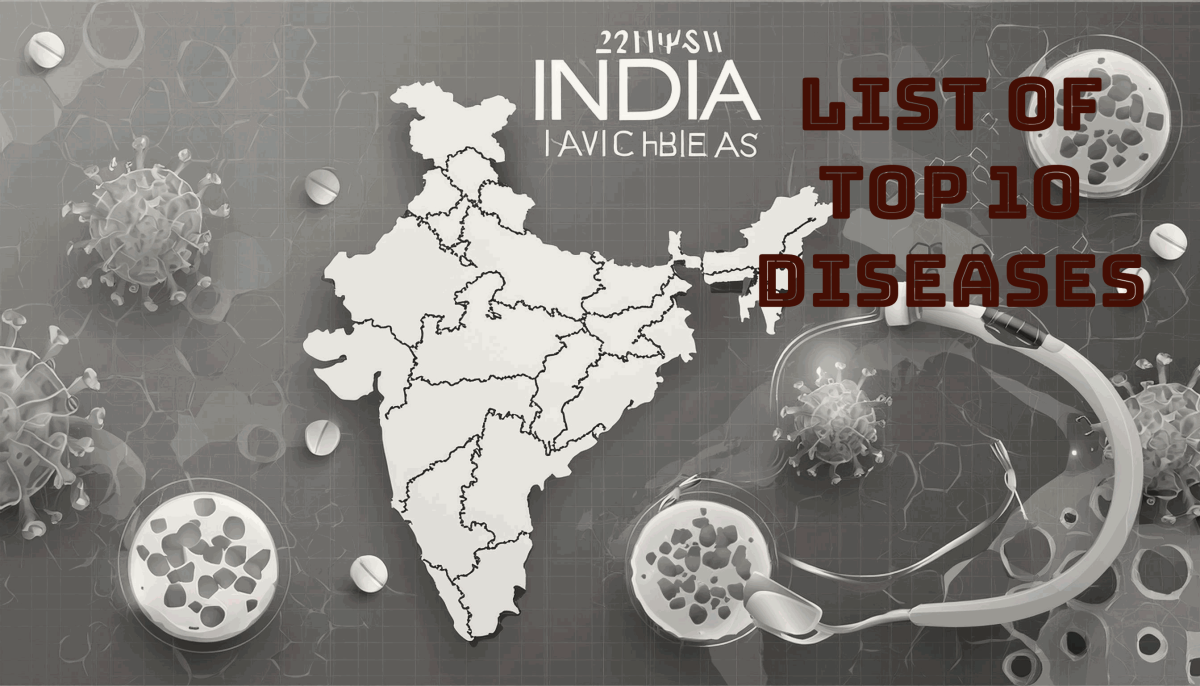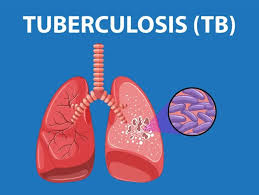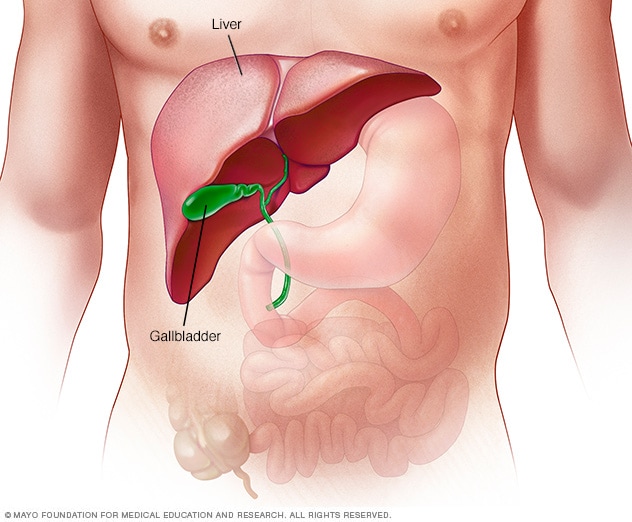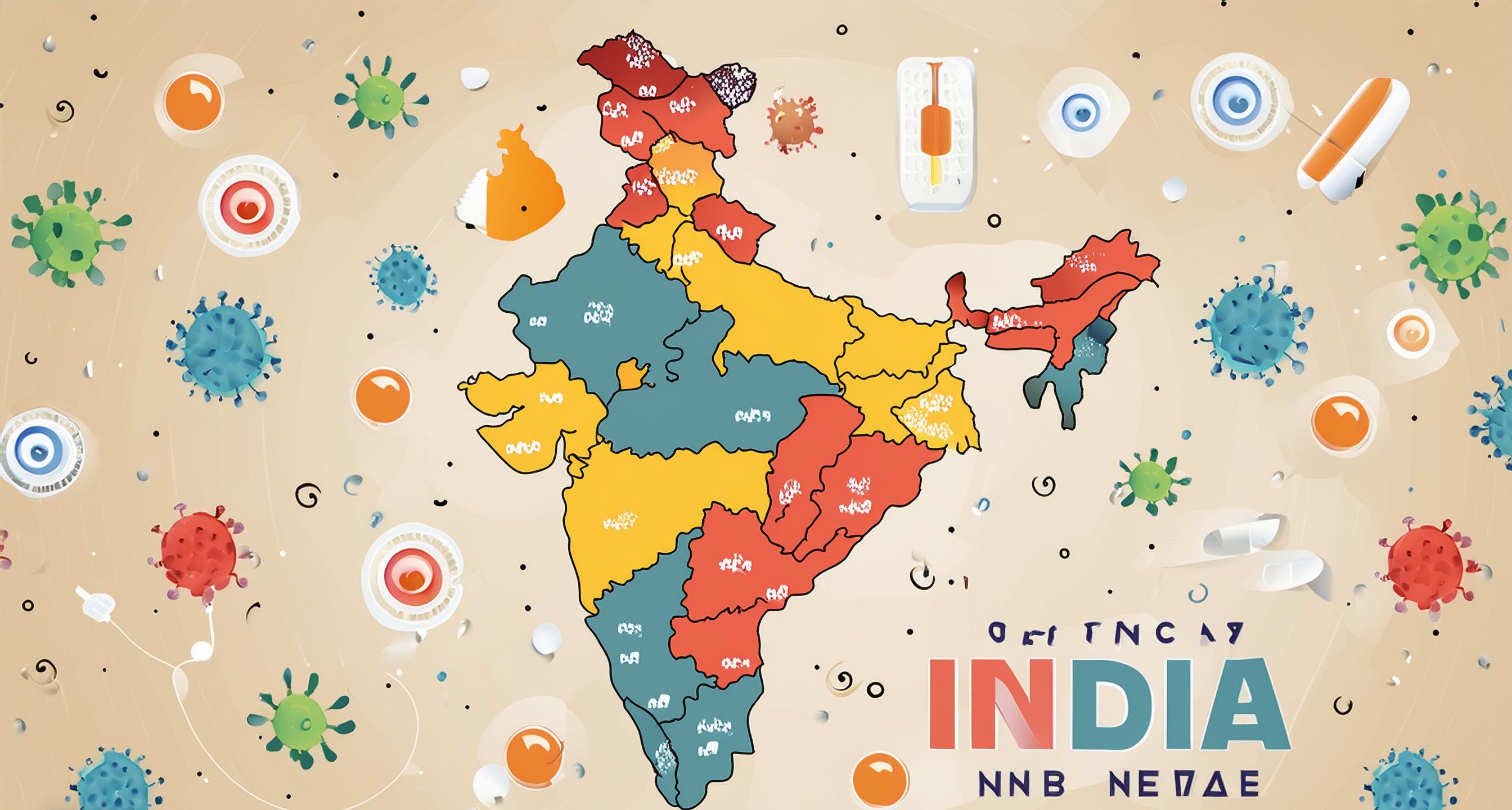 India a country rich in various landscapes and with a huge population faces a wide range of health challenges due to certain lifestyle habits, environmental conditions, and other possible causes. The diseases may range from severe to chronic they may be spreading, infectious, and sometimes fatal.
India a country rich in various landscapes and with a huge population faces a wide range of health challenges due to certain lifestyle habits, environmental conditions, and other possible causes. The diseases may range from severe to chronic they may be spreading, infectious, and sometimes fatal.
Here is the list of top 10 most common diseases in India:
Cancer:
Cancer is one of the most commonly seen cancers in India there are different types of cancers such as breast cancer, cervical cancer, and lung cancer, and different types of blood cancers are being seen in increased numbers. It gets into the human body due to different causes when the abnormal cells rapidly grow in any part of the body. Early detection and proper treatment procedures such as chemotherapy, radiation therapy, and surgery can help people manage cancers in an early stage. Following a healthy diet and lifestyle modifications also play a key role in addressing cancer problems.
About 5,56,400 deaths are estimated due to cancer in India.
Cardiovascular diseases:
 Heart problem cases are also increasing enormously, a few factors such as smoking, drinking, high cholesterol high blood pressure, and unhealthy eating habits contribute to the occurrence of heart problems and people who are not physically active have more risk of developing heart problems. Genetically also few people may acquire heart diseases.
Heart problem cases are also increasing enormously, a few factors such as smoking, drinking, high cholesterol high blood pressure, and unhealthy eating habits contribute to the occurrence of heart problems and people who are not physically active have more risk of developing heart problems. Genetically also few people may acquire heart diseases.
About 28.4 deaths in India are due to cardiovascular problems.
Maintaining a heart-healthy diet, quitting smoking and drinking, and maintaining a healthy weight are highly essential to managing the risk of cardiovascular diseases.
Stroke:
Stroke which is also known as a cerebrovascular accident is also one of the top 10 diseases in India. Usually, it occurs when the blood flow to a part or a side of the brain is lowered or restricted. It may be fatal or else lead to disability. There are different types of strokes such as ischemic stroke, hemorrhagic stroke, and transient ischemic attack. Ischemic stroke is more prevalent in India among those types. Diabetes, high blood pressure, high cholesterol, and obesity are the risk factors for a stroke.
Source: World Health Organization as of 2019. Number of deaths for every 1000,000 individuals.
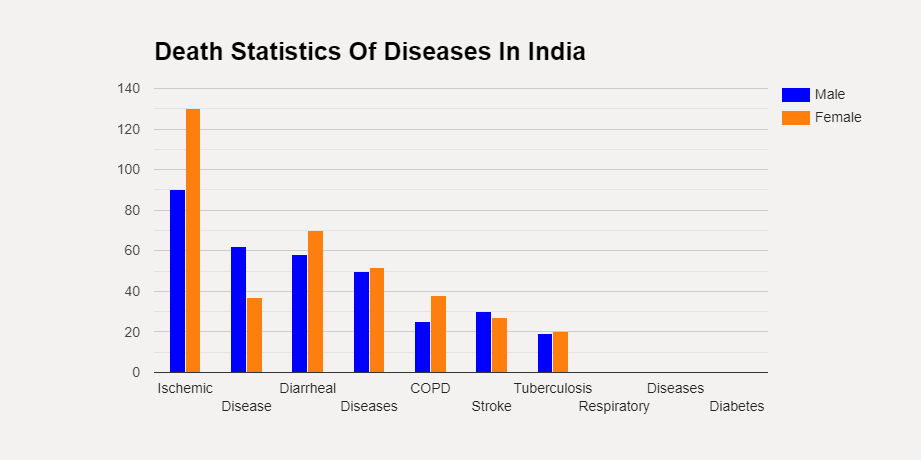 Diabetes:
Diabetes:
Diabetes has increased cases in India due to the increased levels of blood sugar for a long time, diabetes can occur at any age. There are different types of diabetes such as type-2 diabetes which has most cases in India and gestational diabetes which occurs during pregnancy. If gestational diabetes is not managed well it can lead to severe health complications for both the mother and the baby. The risk factors of diabetes include obesity and unhealthy diet. Diabetes can also lead to severe health complications if not managed well the complications include: cardiovascular diseases, kidney problems, and eye and nervous problems. Do visit a doctor for an effective treatment and best management processes.
Tuberculosis:
|
In the past tuberculosis has been seen in most people due to a variety of factors such as malnutrition, HIV, etc. There are different types of tuberculosis such as affecting the lungs, lymph nodes, bones, and affecting kidneys. TB is spread through an infected person by sneezing, coughing, and any other type of contact from an infected person. Proper treatment and preventive measures are highly essential to manage these chronic situations. |
Dengue, Chicken Gunia, and Malaria:
Malaria, dengue, and chicken gunia are mostly spread by mosquitoes. Dengue has symptoms such as high fever, headache, eye pain, joint and muscle pain, and rashes. The symptoms of chicken gunia are sudden fever, severe joint pains, headache, nausea, fever, and rashes. Symptoms of malaria fever are fever, over-sweating, nausea, and body pains. In both urban and rural areas mosquito-causing fever cases are higher In India, due to poor hygiene and climate variations Early diagnosis and proper treatment procedures can best help manage dengue, chicken Gunia, and malaria.
Respiratory problems:
In highly populated areas of India respiratory problems such as pneumonia and bronchitis are seen in increased numbers due to poor hygiene measures also the lung disease called chronic obstructive pulmonary disease(COPD) is also most prevalent in India. The most common causes of respiratory problems according to research are pollution, smoking, and indoor cooking habits(smoke).
Liver Problems:
|
Liver problems are also seen in increased numbers in India such as cirrhosis, hepatitis, fatty liver disease, and liver cancer, due to different reasons such as alcohol consumption, overweight, and unhealthy lifestyle habits. Early detection of the disease and proper treatment, staying far from smoking and drinking, and managing a healthy weight can best help to manage liver problems because most liver problems are due to unhealthy lifestyle habits. |
Diarrheal problems:
Diarrheal problems can be caused by viral, bacterial, viral, and parasitic infections. They may even lead to death if not managed well. Mostly children aged below five are diagnosed with diarrheal problems leading to malnutrition problems. Poor hygiene and impure drinking water are the main cause of these diarrheal problems such as cholera and rotavirus infections.
HIV/AIDS:
The HIV/AIDS cases are also widely increased across the world, HIV gets spread by having unprotected sex, sharing infected needles, mother-to-child transmission during pregnancy, and even infected blood transfusion can spread HIV from one individual to another. Early diagnosis and proper treatment procedures are highly essential to manage HIV.
